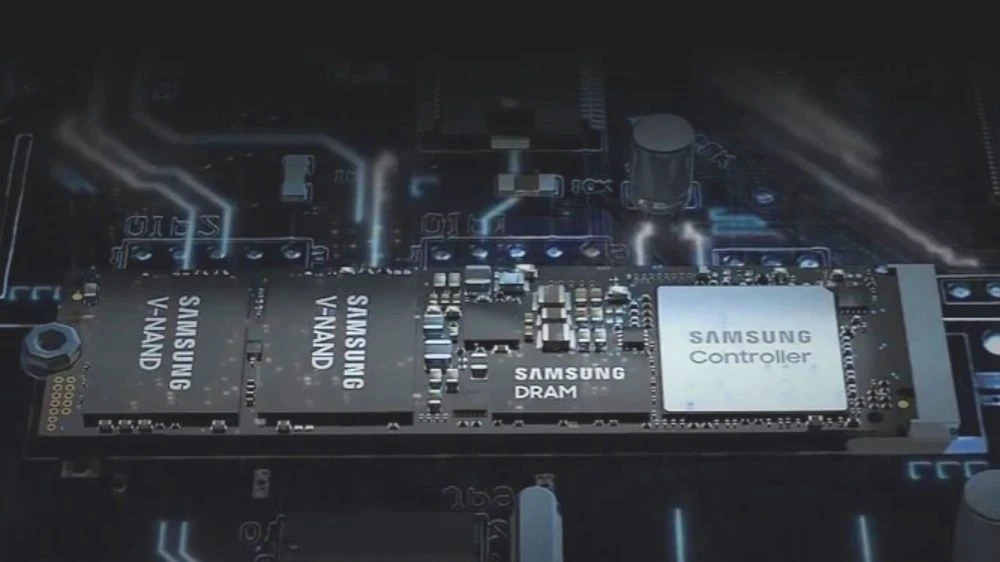Samsung has just begun producing what is essentially its first PCIe SSD 5.0 and it's faster that any other SSD currently available.
PCIe 5 SSDs are still not very popular, especially in PC gaming. Samsung has just begun producing PCIe 5 SSDs that are incredibly fast, and are supposedly very efficient.
Samsung's PM9E1 is claimed to have a maximum of 14.5 GB/s for sequential read and 13.5GB/s for sequential write. Samsung claims that its PCIe 4.0 predecessor had read and write speed of 7 GB/s et 5.1 GB/s respectively.
For reference, the fastest PCIe SSDs are currently limited to 12 GB/s of read speed and 10 GB/s of write speed. Standard SSDs are usually limited to speeds lower than these. The fastest PCIe SSD, apart from the new PM9E1, is the Crucial t705, which has a 14.5 GB/s reading speed but a slower write speed of 12,700 MB/s.
Samsung will be able to claim that it has created the fastest consumer SSD in the industry with this SSD. This is a remarkable achievement for a company who has barely entered the PCIe-5.0 market and currently only sells one model, the 990 Evo.
We could just as easily consider the PM9E1 to be the first PCIe SSD from the company, since the 990 Evo doesn't qualify as a PCIe SSD. The 990 Evo is a PCIe 4.0 over 4x4 lanes. It runs at 5.0 2x2 speeds. The PM9E1 should, however, run at true PCIe Gen 5 speed.
The PM9E1 is likely to be a drive that OEMs will use in pre-builts or workstations. A consumer-focused drive with the new Samsung controller would likely follow with a more fancy naming scheme.
It's important to remember that none of this matters if the SSD is unreasonably expensive or unbearably hot. This is the main issue with PCIe-5.0 SSDs and the reason why we recommend PCIe-4.0 drives for most of our recommendations.
This, and the fact sequential reads and write speeds don't mean much if they are limited by the lowest-common denominator - which will be the device you're transferring to or from - is also important. As it stands, the current PCIe 5 4k random read/write speeds are barely improved, which is a major problem, given that these speeds affect one's desktop and gaming experience.
The PM9E1 on the other hand is said to offer power efficiency improvements of more than 50%, thanks to its new 5 nm in-house controller. If Samsung kicks the PCIe 5.0 controller game into some semblance of reasonableness--meaning it makes SSDs with controllers that don't require stacks of active cooling to run--that would be promising. It could even produce PCIe SSDs that fit in laptops and handhelds.
This could be the beginning of PCIe 5.0 SSDs that are actually usable, just in time to make them available on new platforms. Some x870 boards, for example, can support three Gen 5 SSDs. Z890 motherboards reportedly have more PCIe 5 lanes than a very large NVMe drive.
This Samsung drive could signal that PCIe 5.0 drives will soon be worth it.
It would make sense given the new AMD/Intel platforms and the advent of AI computing, where NPUs/LLMs could make good use faster drives. Let's hope that any SSD progress will also boost gaming.




Comments